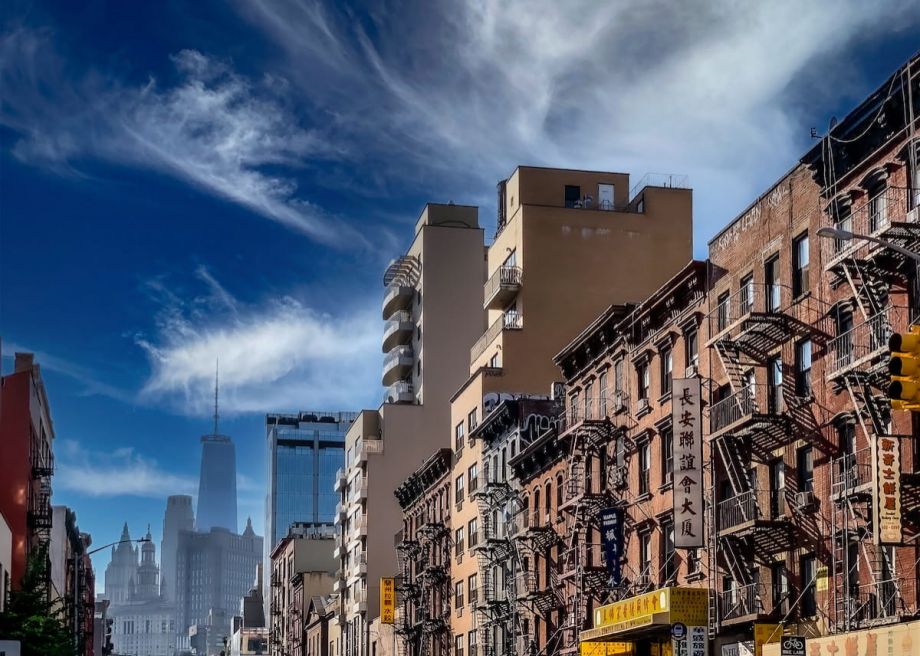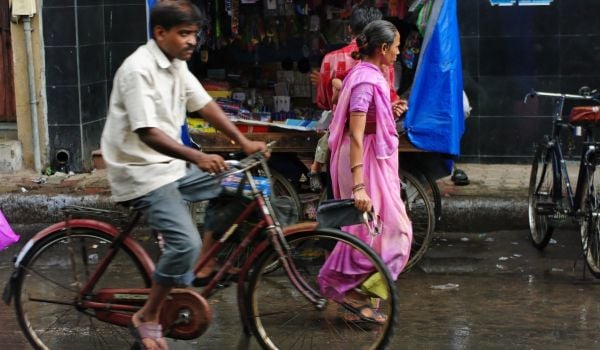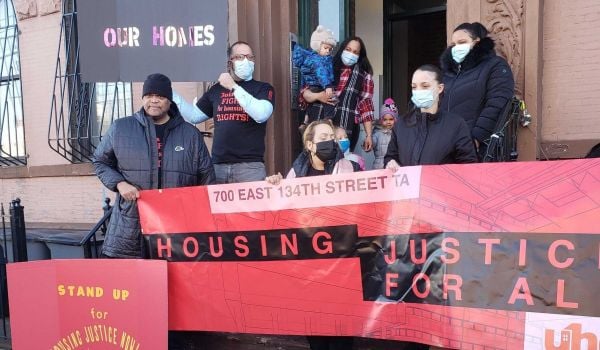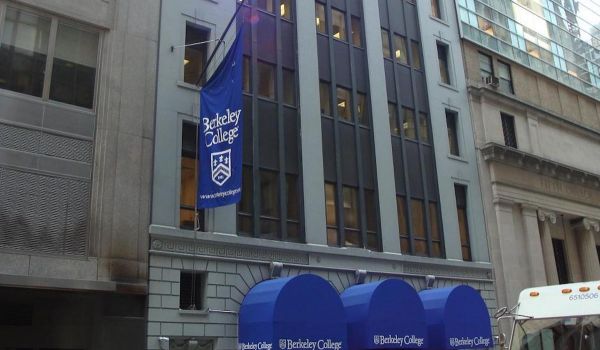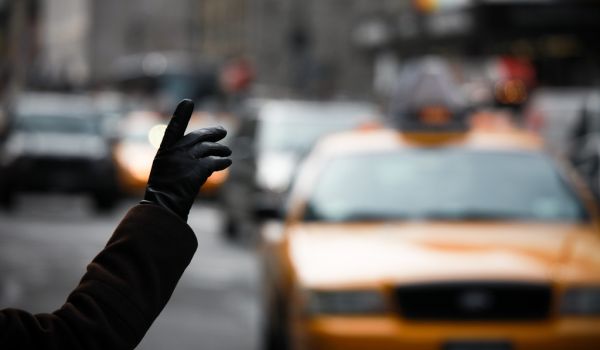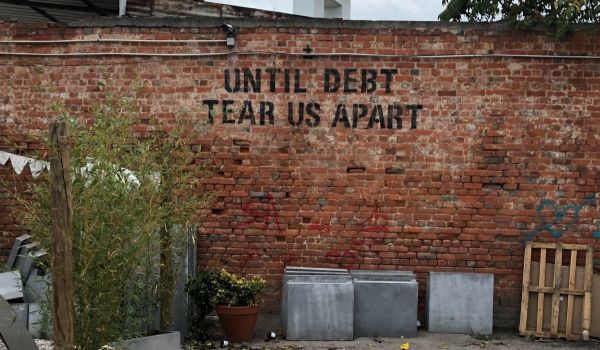Happy first Friday of summer! And welcome to Weekly Wrap!
Do you have news or an event that should be in next week’s newsletter? Email us details at wrapped@nextcity.org — and it might just get included in next week’s edition!
Rent-Stabilized Tenants In New York City Receive Another Rent Increase
New York City’s Rent Guidelines Board voted to raise rents on roughly 2 million tenants in about 1 million rent stabilized units across the city. In a 5-4 vote, the nine-panel board voted that landlords can raise rents on one-year leases by 3% and raise rents on two-year leases by 2.75% the first year and then 3.2% the second year. It comes a year after the board voted for 3.25% increase on one-year leases and 5% for two-year leases. Tenants and advocates were not happy about the increase, letting out a barrage of jeers. A hearing on the vote in Brooklyn last Friday drew lines around the block and calls for a rent rollback, according to the Indypendent. Mayor Eric Adams praised the board’s vote but called for the construction of more housing, according to Gothamist. The increases will apply to lease renewals beginning October 1.
Human Rights Groups Protest Prime Minister Narendra Modi Visit
Human rights groups protested Prime Minister Narendra Modi’s visit to the U.S. on Thursday. Reuters reported that the Indian American Muslim Council, Peace Action, Veterans for Peace and Bethesda African Cemetery Coalition had planned demonstrations near the White House during Modi’s time there. And some lawmakers boycotted his speech in D.C., according to the New York Times.
Artists in New York City hosted an event on June 21 called “Howdy Democracy,” a play on a 2019 pro-Modi event in Texas called “Howdy Modi!” On June 20, Amnesty International and Human Rights Watch hosted a screening of a documentary about Modi that was banned in India titled “India: The Modi Question” that looks at Modi’s role in the 2002 Gujarat riots in which 1,000 people were killed, most of whom were Muslim. The Modi government has cracked down on journalists and issued new citizenship laws that would exclude many Muslim immigrants. India has gone from 140 to 161 in the World Press Freedom Index since Modi took office.
It Will Be Cheaper To Build Renewable Energy On Federal Land
The Bureau of Land Management proposed a new rule that would reduce fees for wind and solar projects on federally-owned land by 80%, Grist reports. Historically, federal policy has incentivized fossil fuel projects on federal lands, but last year the Bureau introduced an internal guidance to reduce fees for clean energy. This year’s proposed rules would take that guidance further. It also would remove a requirement for the government to have a competitive auction in certain regions prioritized for clean energy development, according to Grist.
Incarcerated Student Loan Borrowers Are Defaulting On Loans
A new report from the Student Borrower Protection Center looking at incarcerated borrowers found a “100% default rate for student loan borrowers enrolled in Higher Education in Prison (HEP) programs” in several east coast jails and prisons where researchers could obtain data.
It also found that 94% of incarcerated borrowers would see their debts completely eliminated by President Biden’s student loan cancellation plan, which is set to go before the Supreme Court in the coming days. The study looked at 57 incarcerated borrowers with federal loans, but according to the Center, a 250,000 federal student loan borrowers across the country are incarcerated.
Rapid Transit Use In California’s North Bay Is Higher Than Pre-Pandemic
Like many transit systems across the country, D.C.’s Metro is facing an existential threat due to cratering ridership. The system is still at only 50% of pre-pandemic ridership, according to DCist, and service cuts are a possibility unless other sources of revenue are found.
But not every transit system is disarray: in Northern California, a light rail line connecting Marin County and Sonoma County has actually seen ridership rise above pre-pandemic levels. A large reason why is because Sonoma Marin Area Rapid Transit (SMART) doesn’t rely as heavily on fare revenue, so it was able to woo riders back with service increases and improvements, according to North Bay Business Journal. Fifty-two percent of the system’s revenue comes for sales taxes, according to the outlet. Not only did the SMART system increase the number of trains on weekends, it cut fares and suspended a fee for its parking lots to bring in more riders.
Curated by Deonna Anderson
MORE NEWS AND RESOURCES
-
In Arizona, Tucson’s mayor and city council voted to extend its fare-free transit system indefinitely. Advocates note that Tucson is currently the largest transit system in the U.S. to commit to fare-free service. Living Streets Alliance
-
The Ella Baker Center for Human Rights, in conjunction with UCLA’s Luskin School of Public Affairs, released a report about the Impacts of climate change on people who are incarcerated in California state prisons. Read more here.
-
Reparations movement leaders share their dreams for bringing the U.S. closer to realizing reparations for Black Americans. YES! Media
-
Movement Generation and Sogorea Te’ Land Trust announced their partnership to return 43 acres of land to Indigenous care, in the unceded Bay Miwok territory of the Bay Area. Sogorea Te’ Land Trust
-
Two reports released this week assert that people in some Southern U.S. states have lower access to bank branches and “face higher interest rates than in other regions in the country.” Banking Dive
EVENTS
-
Reckon News and Condé Nast’s them is hosting a conversation with queer and trans media-makers, who will share their insights and experiences on what it means to have trans-led storytelling. Learn more and register here.
-
Boston Ujima Project hosts meetings (#UjimaWednesdays) dedicated to financial and political education, and its member working groups. Learn more about the summer lineup and register here.
-
Plus, check out Next City’s upcoming events here.
This article is part of The Weekly Wrap, a newsletter rounding up stories that explain the problems oppressing people in cities and elevate the solutions bringing us closer to economic, environmental and social justice. Click here to subscribe to The Weekly Wrap newsletter.

Roshan Abraham is Next City's housing correspondent and a former Equitable Cities fellow. He is based in Queens. Follow him on Twitter at @roshantone.



